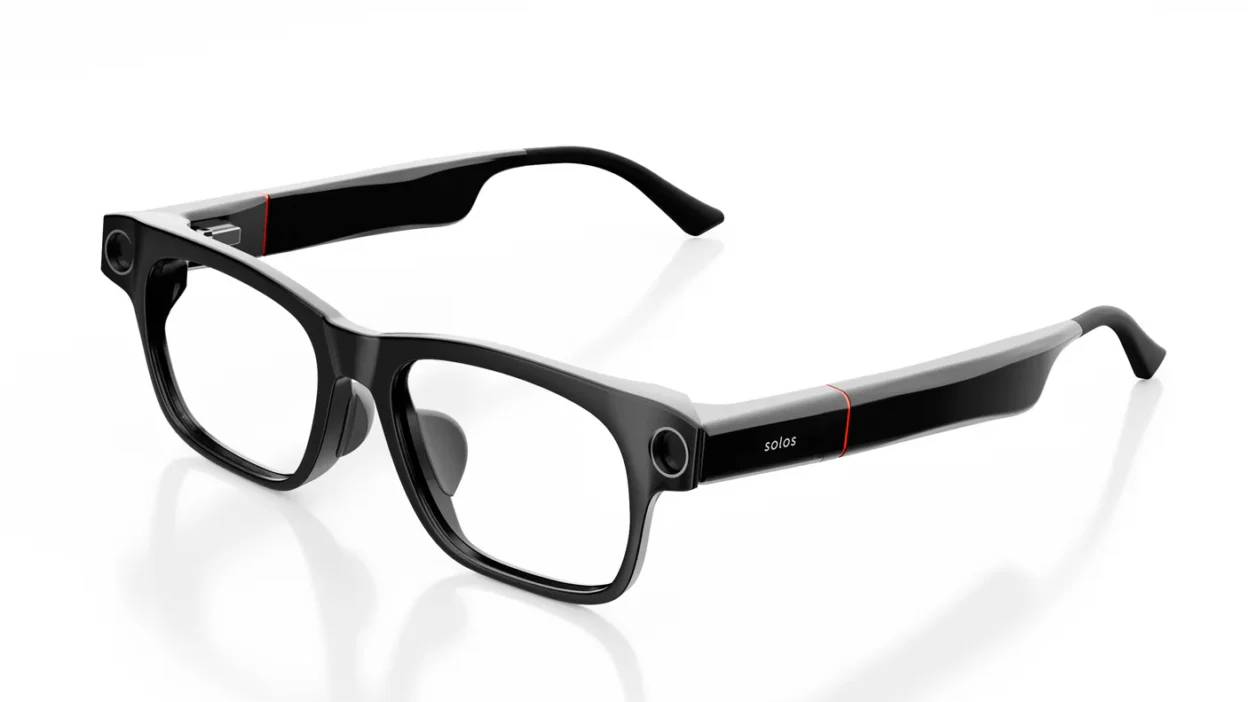In the evolving world of smart glasses, the Solos AirGo Vision represents an exciting option for tech enthusiasts. These innovative glasses provide instant access to AI capabilities, potentially revolutionizing the way we interact with information on the go. Solos AirGo Vision glasses were presented in CES 2025.
Table of Contents
Overview of Current Smart Glasses
Current-generation smart glasses primarily fall into two categories. On one side, you have devices like Xreal, which rely on wired connections to gadgets such as phones and laptops, turning them into portable monitors. On the other, options like the Meta Ray-Ban smart glasses blend functionality with a more natural aesthetic. They feature a speaker, microphone, and camera, allowing users to capture images and interact with their environment through AI assistance. While Meta’s glasses have enjoyed popularity, the landscape is rapidly changing, and Solos seems poised for success with their new offering.
Design and Aesthetics
The Solos AirGo Vision smart glasses are crafted with a focus on everyday usability. Their design strikes a balance between functionality and a stylish appearance, evoking a familiar look rather than overly futuristic styles that can overwhelm users. Equipped with dual camera lenses, these glasses may appear techy, yet they maintain a level of discretion. There’s also an alternative model, the Solos AirGo3, which omits the cameras for a more traditional look, while still allowing interoperability between models.
However, the design isn’t without flaws. Users need to remember to turn the glasses on and off manually, which can lead to unexpected connectivity issues after they’ve been folded and placed in a bag—an automatic feature would certainly enhance the experience. With a battery life of around ten hours and IP67 water resistance, these glasses are ready for daily adventures.
Advanced AI Features
The standout feature of the Solos AirGo Vision smart glasses is their integration with an AI voice assistant powered by ChatGPT. This assistant taps into real-time data—like your location or visuals captured by the glasses—to provide tailored assistance. Whether it’s locating restaurants nearby or translating text, this capability significantly enhances everyday usability. However, accuracy can still be hit or miss, needing some refinement, as noted during a user’s navigation experience in a bustling city.
Solos App Enhancements
The companion Solos app adds an additional layer of control, allowing users to adjust settings for their smart glasses and the AI assistant, including speech speed and audio EQ modes. Furthermore, the app also supports text input and photo sharing, promoting a customizable user experience. While some aspects of the app’s functionality require adjustment time, most users should find it intuitive.
Privacy Considerations
Using smart glasses naturally raises concerns about privacy. While some data sharing, like location, is justifiable for AI functionality, requests for extensive photo library access may come off as excessive. Users can opt for limited access, a preferable choice to maintain control over personal data. Photos taken with the glasses are automatically deleted from the cloud after thirty seconds, but manually captured images are stored on the user’s phone, making privacy management a priority.
Sound Quality
Audio quality in the Solos AirGo Vision remains one of the product’s weaker aspects. Built-in speakers tend to produce tinny sounds lacking in depth, making them less ideal for music listening. For a better audio experience, it is advisable to use separate Bluetooth earbuds.
Conclusion
In summary, the Solos AirGo Vision smart glasses represent a noteworthy leap in the smart glasses arena. With their AI-powered capabilities and practical design, they have much potential. However, some drawbacks, particularly concerning audio quality and app-based privacy, highlight that while Solos offers a compelling option, the quest for the perfect smart glasses continues. Available for $299, these glasses are currently running low on camera-equipped models on the Solos website, making them a sought-after item in the tech market.
Frequently Asked Questions
What features make the Solos AirGo Vision a good option?
The Solos AirGo Vision smart glasses offer real-time AI assistance, visual recognition, and a stylish design that makes them suitable for everyday use.
How do the Solos AirGo Vision glasses compare to other smart glasses?
Unlike competitors like Meta Ray-Ban, Solos glasses emphasize practical AI integration and maintain a more natural appearance, while also providing customization options through their app.
What are the privacy implications of using Solos AirGo Vision glasses?
While some data sharing is necessary for functionality, users can limit access to personal information, ensuring that their privacy remains protected.
Is the audio quality of the Solos AirGo Vision satisfactory?
The audio quality is average; users may prefer to use wireless earbuds for a better music experience.





